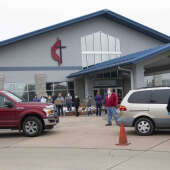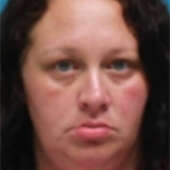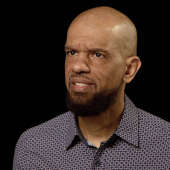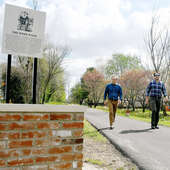Business experiences shape two key races
The candidates tell you how
There are a number of important political races in our area this year, a few, because of term limits, pitting talented individuals against each other in districts without an incumbent. In this month's B, we are looking at two of these Missouri races: Senate District 27 and House District 147. The House district includes the city of Cape Girardeau. The Senate district encompasses all of the counties of Bollinger, Cape Girardeau, Madison, Mississippi, Perry and Scott. The four Republicans and two Democrats were sent the same questions. Here is how they responded, starting with a three-sentence self-introduction.

Kathy Swan
Republican candidate for Missouri Senate District 27
Current representative for Missouri House District 147
Swan: I am a small businesswoman running a small wireless communications company, and I previously worked as a nurse. I am proud to have served on the Missouri Coordinating Board for Higher Education, the Missouri Higher Education Loan Authority and Missouri Senate Reapportionment Commission. I served on the Cape Girardeau City Council and Cape Girardeau School Board and was elected to the Missouri House in 2012, where I have worked to encourage economic growth, get government out of the way and protect the sanctity of life.
How old were you when you had your first job?
Swan: At nine years old, my mother and father started our family business, Johnson Communications Service. Since it was operating from our home, I began answering the telephone and taking messages from customers. I did not even think of it as being a job!
What is an important lesson you learned early in your career?
Swan: The most important lesson is doing the right thing with integrity, accuracy and follow-through. Honesty, attention to detail and following through on commitments are critical for work and for life.
As a child, my mother stressed the importance of doing the right thing, being truthful, keeping one's word and being respectful of others. She believed that how things are done is just as important as the result.
Nurses taught the "Five 'Rights' to Medication Administration:" give the right medication, in the right dosage, by the right route, at the right time to the right patient. These rights along with my mother's insistence on doing the right thing became a permanent part of my ethical framework in life and in nursing, in our small business, in community service and in building relationships with others.
How did you finance college?
Swan: I was fortunate that my parents paid for my college education. It took a lot of hard work and sacrifice to give me this opportunity, and I am grateful for it. Neither of my parents were able to complete high school. My father was forced to drop out of Central High School to work at the shoe factory to help support his large family.
Living in Laflin, the nearest high school in Marble Hill was much too far away for my mother to attend. She longed to become a nurse. Therefore, it was important for them to ensure that I had the opportunity to attend college.
Without having to work during the college years, it allowed much more time for study for my difficult major! There were 60 freshmen in my nursing school class; 12 of us completed the two-year program.
After our son was born, I completed a baccalaureate degree in nursing followed by an additional 30 hours in business. Due to our family business, I needed the extra knowledge in accounting, marketing, finance and management!
Describe the different steps in your career and why you made the choices you did.
Swan: Nursing: 1970-1996
Floor nurse on medical-surgical unit: FT
Floor nurse on progressive cardiac care unit: PRN
Administrative supervisor: PRN
Employee health nurse: PT
Infection control nurse: PRN
Clinical nursing instructor at Southeast Missouri State University: PT
JCS Wireless: Childhood to present
As a child: Helped answer customer calls and radio dispatched messages
As a teenager: Helped with customer billing
When my mother died, I took over more responsibility for the family business while still maintaining a career in nursing. Nursing gave me the opportunity to practice my profession and satisfied my passion for learning in my field.
I did not plan to enter the family business from the outset. I worked hard to balance my nursing career with the demands of helping to run a small business, helping my family through the challenges and ultimately purchasing the business in 1986.
Managing a wireless communications company is an entirely different experience from nursing. Over the years, the business was impacted from changing technology and moved from a service business to retail business, which required a change in marketing and in operations. Additionally, I went from earning a comfortable salary to having the concerns of meeting a small business payroll!
Balancing the family business responsibilities and a nursing career was a challenge, but rewarding. While the job duties were vastly different, working with others, building relationships and doing the "right things" were the same.
Tell about one of your favorite books about business, leadership or government. Why should others read it?
Swan: "On Becoming a Leader" by Warren Bennis stresses that leaders are made, not born, and they continue to grow and develop throughout life. Rather than being a series of lessons, Bennis sees leadership as a process and that leaders learn by their life experiences.
How would you describe your management style?
Swan: "Interpersonal" is the best word to describe my management style. As a young nurse with responsibility for several patients along with three to four staff members, I quickly learned how to remain approachable and delegate with kindness and respect. This same approach has been sharpened through much volunteer work with both local and state organizations and boards.
And your vision of your personal public service?
Swan: I want to ensure that Southeast Missouri continues to thrive and that families in this region continue to have access to good jobs and good schools. I also want to make sure we keep our community safe. I always focus on policies that will make a meaningful difference for families in Southeast Missouri, and I am proud of the progress I have made on important issues like promoting our economy through workforce development programs and protecting the sanctity of life.
What would colleagues say is your biggest strength? And weakness?
Swan: Strength: Relationships and working with others.
Weakness: My assumption that everyone is truthful and can be taken at face value.
Tell about a specific time you faced adversity.
Swan: Whether losing my mother at an early age to cancer, facing my own breast cancer diagnosis, facing our son's cancer diagnosis or the struggles of a small family business, the lesson has always been the same:
Accept not being in control.
Take charge of your emotions.
Have faith in God.
Use adversity as an opportunity to grow and learn.
What can state government do to best help businesses and workers?
Swan: The best that state government can do to help businesses and workers is to remove regulatory barriers and stay out of the way. The state can take a lesson from the recent waivers and determine which regulatory waivers can be made permanent and review others that could be eliminated. Our businesses and economy would benefit.
Why do you want to serve in government -- right now, at this moment in time?
Swan: I believe our state needs strong, conservative voices to make real progress on the issues important to Missouri families and small businesses, rather than letting special interests kill good bills. We need people who will work to move our economy forward using all the tools in the toolbox, including increased workforce training, innovative initiatives to attract new jobs and eliminating unnecessary regulatory barriers.
What message would you tell young people who are just starting their careers about how to be successful?
Swan: I would suggest that young people should develop good work habits including attention to detail, follow through on their commitments, have a positive attitude and look at every opportunity -- no matter how challenging -- as a learning experience, and learn how to work effectively with others. Volunteering in the community is a great way to build relationships and to learn skills that can be transferred to the workplace.

Holly Rehder
Republican candidate for Missouri Senate District 27
Current representative for Missouri House District 148
Rehder: I first got involved in government because as a business owner, I saw how often the government hurt small businesses and workers; I wanted to see people with skin in the game represent the people. As a mother, wife and grandmother, I wanted to preserve freedom for future generations and to make a better life for those in my life. As a representative, I am proud of my work in fighting bloated government, in protecting our 2nd-Amendment rights and in speaking up for the unborn.
How old were you when you had your first job?
Rehder: I was 13 when I started working as a landscaper for my mother's boyfriend at the time. He had a lot of yards each week to take care of, so I talked him into hiring me. I was excited to earn money and very much appreciated the opportunity to work.
What is an important lesson you learned early in your career?
Rehder: I was 15 and pregnant, sleeping at a friend's place and needing a job so I could get on my feet. I was tremendously thankful to find a job as a nanny for two small children. However, when I was interviewed, I felt I had to lie about my age to get the job. I was pregnant, so I'm sure they never even considered I may be as young as I was. I was desperate for work to support myself and my child that was on the way. I told them I was 18. I got the job, and after two weeks grappling with the guilt I had over what I had done, I called up the mother and told her I had lied about my age to get the job, and I apologized profusely for it. The family decided that I was doing a good job and graciously kept me on as their nanny.
From that moment, I knew regardless of the outcome, I had to be myself in all things. Honest, hardworking, and at that point 15, pregnant and a high school dropout. Be me and trust God to provide the rest. And he always has.
How did you finance college?
Rehder: My college education was anything but standard. First, I had to work to get my GED. Once I had earned that, I was so excited to start college. I went to Southeast Missouri State University starting with a Pell Grant to help cover costs. I worked part-time to pay for the rest. However, after starting out as a full-time, non-traditional student, I found that I could not support my family and go to college full-time. I dropped out of college and went back to work full-time. In the meantime, I would take college classes as I could, nights, weekends, etc., paying out of pocket as I went.
It took me 17 years of this process to finally get my college degree. I earned my Bachelor's in mass communications and a double minor in political science and communications for legal professionals from SEMO. It certainly wasn't easy, but I knew how important it is to have your education, so I worked to earn it.
Describe the different steps in your career and why you made the choices you did.
Rehder: Well, like I mentioned above, I worked full-time to support my family while I also tried to earn a college degree. I started at Galaxy Cablevision, working in the mail room and earning $4.25 an hour. I worked hard and was very thankful for my job.
As different jobs opened up at the company, I would apply for them. Some I would get, some I would not. In any job, I resolved to be the first one there and the last one to leave. I wanted to prove that I was an employee who could be trusted with what she was given, stay out of other people's business and be the best worker in the building.
After years at the company, I had worked my way up to director of government affairs, working on cable franchises throughout 13 states. In that position, the Missouri Cable Association asked me to represent the cable industry's interests in Jefferson City because I knew the cable industry inside and out, and I was good at my job. I served on the board of directors for the association and worked as an advocate and discovered that oftentimes the government would presume how to run businesses better than the businessowners themselves; not just in our industry, but for industries around the state. It was this frustration with how the government tried to bloat itself that planted the idea in my head to get involved in politics.
After 14 years, I left Galaxy Cablevision and went to work for the Cable Association full time helping to fight and protect the industry, as well as our own personal business that we had started in 2004, Integrity Communications. Ray and I learned fast that it isn't easy running our own small business, especially when there's so much government red tape.
After three years with the Cable Association, I went to work for then-Congresswoman Jo Ann Emerson, where I learned firsthand how to take care of constituents and how to fight for our region. I learned from Jo Ann what it takes to represent people. I decided to run for representative in 2012 to finally be more of a voice for small businesses dealing with the government. To be a voice for people who grew up like me and have found that our many government social programs often hinder people from ever rising to their potential -- even though they are started as a means to help upward mobility.
I've been working since then to help the people and protect their rights and businesses.
Tell about one of your favorite books about business, leadership or government. Why should others read it?
Rehder: One book that has been very influential has been Ayn Rand's "Atlas Shrugged." I certainly don't agree with Rand's philosophy on everything, but in her novel, she just seemed to capture the destructive mindset of those in government who try and control everything. The novel shows what happens when the mantra of "social good" is used as a cover to grow government to exorbitant size and how corporate welfare ends up corrupting society. The book shows that when the government aligns itself with big corporations, it leads to racketeering and corruption that holds society back and degrades the work people do. It spoke to me as a business owner why it is important to not be beholden to the government.
How would you describe your management style?
Rehder: I am a very Type-A personality. I am a hands-on, go-getter type that puts everything I have into the job and do it with honesty and integrity. With that being said, one thing I have learned is that you cannot micromanage and expect your business to thrive; one huge aspect of leadership is being able to delegate. I believe in hiring the right people for the job, people who will do the job with honesty, integrity and determination. I love allowing people to do their jobs and to do them well, to give them a goal and to allow them to come up with the way to accomplish that goal, in their own style. We all learn from each other.
And your vision of your personal public service?
Rehder: Above all, a public servant must be available to the people. Be responsive to constituents, take the calls, help them in any way you can. Turn over every stone for them. As a representative, I am often the liaison to the people, helping them cut through government red tape. I take that very seriously. As a legislator, I think we need a smaller, more efficient government. We cannot waste the people's money on ridiculous schemes and then demand more from the people. A public servant should help make the government more accountable and transparent to the people.
What would colleagues say is your biggest strength? And weakness?
Rehder: I would say my colleagues would consider my persistence and determination my biggest strength. I never give up, I don't back down, and I don't quit. I stand on principle and will fight for what I believe is right. On the flip side, I would say my colleagues would also consider that to be my biggest weakness! I will frustrate colleagues when I continue to stand on principle when they want me to compromise. Sometimes compromise works and is the right solution. But when it's not the right solution, it's just not.
Tell about a specific time you faced adversity.
Rehder: When I was 16, my husband and I moved us to Mississippi for a job at a chicken plant. Our only option was to move into a crowded house in Mississippi; my daughter, Raychel, was almost a year old. It was just us and a few others only a few years older than me. The house had no heat, and we had little money to feed us until my husband's first check.
The other people living in the house were not working -- their choice -- but I knew I couldn't allow their needs to take from the little we had for Raychel. I walked to the store daily and got four cans of vienna sausages for $1 and rationed those out to me and Raychel, and we relied on a $15 space heater in our room to keep us from freezing.
I learned that I have to stand my ground, regardless of who it upsets. I had a child counting on me to get it right. I needed to do the responsible thing and take care of her, my child who fully relied on me, even though that meant it made others angry. I knew they had the power to change their situation but weren't. We were trying to change ours. I was only 16 and weighed about 100 pounds, but I found out I could be a bear if I needed to be, and at that point, my daughter needed me to be. I stand for what is right.
What can state government do to best help businesses and workers?
Rehder: We need to have a Department of Revenue that is responsive to business owners and works with them, not against them. We need less bureaucratic red tape and to make it easier for people to run their businesses. Businesses shouldn't have to hire attorneys just to argue to the government that they paid their taxes and the mistake is on the Department's end. I've seen this over and over. The money wasted on bureaucratic concerns is money that does not go back into the business or to employees. We need to continue to cut restrictions and regulations and to unleash the power of Missouri businesses.
As a business owner, I've also seen the devastating affect the opioid epidemic has had on our workers, on our families. We need to continue finding solutions to help those entrapped in this crisis get out and get back to a healthy, happy lifestyle.
Why do you want to serve in government -- right now, at this moment in time?
Rehder: I want to serve as Senator right now because we are constantly fighting against a government that wants to explode. We need people with backbone ready to push back against government expansion and corporate welfare.
President Trump ran to stand up against an entrenched political establishment that got too comfortable in their positions. I'm running to challenge Jefferson City to be accountable to the people and respect their rights. I got tired of waiting for someone to serve with a backbone, someone to stay in the fight and be responsive to the people -- then I realized it was me I was waiting on.
Those are my qualities -- a fighter for the people. Someone you can't break. I want to protect our rights which are at stake, including our cherished 2nd-Amendment rights. I will stand up for the Constitutional rights of the people, be a loud voice, and I want to serve as senator to protect our liberty.
What message would you tell young people who are just starting their careers about how to be successful?
Rehder: Find the field you want to work in and get a job. Any job. It could be low pay or a non-paid internship, just work it. You are building real-world experience and relationships with people who will help you later on. Your education matters, so don't give up. An impressive resume and credentials help, but relationships are key. If an employer knows you, knows your character and trusts you, they will speak for you and help you. Be the person who says, "Teach me, and I'll be the hardest worker you got," and that will open doors for you like nothing else can. Work hard, be happy in your task, give the glory to God, and he will open doors for you.

Wayne Wallingford
Republican candidate for Missouri House District 147 Current senator for Missouri Senate District 27
Wallingford: My master's degree is in health care administration, and I worked in two hospitals prior to entering the United States Air Force where I served 25 years as an active duty combat veteran. Since retiring from the Air Force, I've been employed by the two largest restaurant corporations in the world; first in operations and currently as the Chief People Officer (HR). I've served one two-year term in the Missouri House of Representatives and am completing my second four-year term in the Missouri Senate.
How old were you when you had your first job?
Wallingford: I was 16 years old when I got my first job at a manufacturing company. They made chaplets for all three major American automobile companies. A chaplet is a small metal molding made of sheet metal that goes into the production of engine blocks. My father was the plant foreman and to assure the other employees he didn't show any favoritism, he did just the opposite and had me do the most difficult jobs that were undesirable and which no one else wanted to do. I still have all the scars on my hands to prove it! However, in the end, I was the only employee trained to do every job in the factory.
What is an important lesson you learned early in your career?
Wallingford: An important lesson I learned early in my career in the United States Air Force was during flight training. You were expected to be an expert in your job because other people's lives depended on it. You also had to trust your crew and those crews who were flying in close formation to your aircraft.
This was particularly important in Vietnam in December 1972 during Operation Linebacker II. People were amazed that somebody thought the B-52 could survive in the Hanoi area because our B-52s would be absorbing all the North Vietnamese surface-to-air missiles in the most heavily-defended area in the world. I flew into sky-filled nights of Soviet-built surface-to-air missiles that traveled three times as fast as our B-52s. However, due to our expert training and trust in the teamwork of the crews piloting other aircraft in close formation to mine, we were able to successfully accomplish our mission to end the war and bring our POWs back home.
How did you finance college?
Wallingford: I worked at the factory where my father was the plant foreman. The pay was good ($1.15 an hour). I worked nine-hour days and occasionally on Saturdays. On the way home from work on Friday, I would deposit my check into my savings account at the local bank.
I grew up in Illinois and attended college in Nebraska. When I came home during fall break, Christmas and spring break, I continued to work at the factory. Over the summer, I would again work in the factory before returning to college.
In addition, I mowed lawns, raked leaves and shoveled snow to supplement my income from my job at the factory. I also did this at my house, except I didn't get paid since doing chores was expected at home. There was no allowance, either! I self-financed my college education and graduated in four years without any college debt.
Describe the different steps in your career and why you made the choices you did.
Wallingford: My bachelor of science degree is in business administration, and my master's degree is in health care administration.
I was employed by Nebraska Methodist Hospital prior to being commissioned as a Second Lieutenant in the United States Air Force. After completing flight training, I was assigned to a B-52 base and sent to Vietnam. After four years in the B-52, I attended Squadron Officer School and upon graduation was assigned to a base flying RC-135 reconnaissance missions.
Four years later, I was transferred to another Air Force Base where I was the Director of Reconnaissance Air Crew Training for the SR-71 and U-2. During this time, I completed Air Command and Staff College.
After three and a half years, I was transferred to a joint tour working with Air Force, Army, Marines and Navy personnel under the command of the United States Commander-in-Chief for the Pacific. During this time, I completed Air War College.
Three years later, the Air Force gave me a four-year sabbatical as the Professor of Aerospace Science at Southeast Missouri State University. Upon completing my sabbatical, my final assignment was in the United Kingdom, where I served as the Director of Intelligence for the reconnaissance operations in the European and Middle Eastern theaters.
After retiring, my goal was to enter the corporate business world. I interviewed with PepsiCo, and they gave me that opportunity. I was assigned to their Taco Bell Division of the Chicago Headquarters. I was given responsibility for a five-state region. Six years later, I was promoted to their Philadelphia Headquarters. I had the responsibility for corporate and franchised operations for a 16-state territory.
Five years later, McDonald's made me an offer I couldn't refuse. I moved back to Cape Girardeau as the Chief People Officer for 17 restaurants employing over 1,200 people. Because of my strong business and health care background, I was encouraged to run for the Missouri House of Representatives. I was elected and served one two-year term in the House. However, my constituents knew the current state senator would soon term out, so they urged me to run for the Senate.
I am finishing my second four-year term. Now, my constituents are urging me to run for the House of Representatives again. If elected, I could serve a total of six more years. Praying for guidance from the Lord and seeking ways to serve him have always been the main focus of my career.
Tell about one of your favorite books about business, leadership or government. Why should others read it?
Wallingford: I've been reading books on leadership for the past 52 years. The books I find particularly fascinating are books about military leadership. A book that I would recommend is "Extreme Ownership (How U.S. Navy Seals Lead and Win)" by Jocko Willink and Leif Babin, both who served as U.S. Navy Seal officers.
The authors provide combat-proven leadership lessons and dive deep into the most challenging aspects of leading people. They demonstrate how each lesson applies to the battlefield, business and life.
How would you describe your management style?
Wallingford: My management style incorporates equal parts patience, passion and performance. I work longer and harder than others and take a genuine interest in my constituents. I'm extremely adaptable to change and lead with integrity and adherence to a set of values and principles that incorporate honesty. I do the right thing regardless of the circumstances, choosing courage over comfort.
And your vision of your personal public service?
Wallingford: Citizenship comes with the responsibility to serve our nation and is built on certain fundamental rights -- but also responsibilities to give back through public service. Public service is having a heart to care about others and putting their interest above your own. It's important to be a servant leader and focus primarily on the growth and well-being of people and the communities to which they belong. This is especially true when it comes to helping the elderly and those who are disabled.
It's never being out of touch with the needs of others. I see my role as being the go-to force dealing with government hierarchies, red tape and the needless thick layers of bureaucracies. I have been dedicated to public service my entire career whether in the military, serving my church, volunteering for non-profit organizations or in state government.
I'm committed to making Missouri stronger and don't ask myself, "Should I serve?" but rather, "How can I serve?"
What would your colleagues say is your biggest strength? And weakness?
Wallingford: My colleagues in the Missouri Senate would say my biggest strength is my genuine interest in the welfare of my constituents and developing positive, effective working relationships in order to accomplish my goals to help them.
They would also say my weakness is devoting all of my time and attention to my constituents whether it's late at night, on a weekend or holiday. But I believe this is what being a public servant requires. I tell them when I joined the Air Force they took away my watch and shredded my calendar, so I don't know the time of day or day of the week.
Tell about a specific time you faced adversity.
Wallingford: I flew over 300 combat missions in Vietnam, and in combat, you learn to deal with adversity. You are also given opportunities to show courage in the face of adversity. I flew more combat missions during the 11 days of Operation Linebacker II than anyone else. Unfortunately, we lost 15 B-52s during that campaign. Of the 10 deadliest U.S. hostile air actions, Operation Linebacker II is considered the deadliest.
On one of the missions, my aircraft received battle damage but was still able to limp back to the base. I learned that God definitely works miracles in our lives. One thing for sure, your senses are stimulated by adversity during air warfare!
What can state government do to best help businesses and workers?
Wallingford: The best thing state government can do to restore economic growth, create jobs and lift the veil of uncertainty hanging over every business and worker is to eliminate the size, scope, cost and complexity of regulations and red tape. Too many needless and expensive regulations are clearly costing jobs and growth.
Also, keeping taxes low is important so businesses and workers can keep more of their hard-earned pay. Bigger government doesn't mean better government!
Why do you want to serve in government -- right now, at this moment in time?
Wallingford: I want to serve in state government to continue to serve the people of Missouri. I've served in the Missouri Senate with Governor Parson and Lt. Governor Kehoe and have developed a solid working relationship with them and with all department officials, other legislators in both the House and Senate as well as staff.
I am the only senator in my freshman class who was elected into a leadership position. I am currently serving as the Assistant Majority Floor Leader. My proven leadership on numerous committees, my understanding and management of the legislative process, and my experience serving on the Appropriations Committee, which crafts Missouri's $30 billion budget, means I can continue to use my vast experience in state government to serve Missourians.
The ultimate goal of my service is to glorify God.
What message would you tell young people who are just starting their careers about how to be successful?
Wallingford: Building relationships is everything. Success is a team effort. Life is complex. There are thousands of moving parts and personalities, so you have to be able to adapt to change. Find a mentor and never stop learning -- school is never out, so continue to develop yourself. Go beyond what's being asked of you. If you develop a strong work ethic, everyone will want to hire you. Technical skills are important, but people who master the soft skills are irreplaceable.
Finally, be happy and excited and look forward to each day. You can make money or you can lose money, but time you can only lose; spend it carefully.

John Voss
Republican candidate for Missouri House District 147
Voss: I am a hometown boy who has worked to demonstrate my dedication to our city and region through my actions, and believe I have the leadership and business experience to best represent you in Jefferson City. During my 33-year career with Procter & Gamble, I delivered large-scale manufacturing startups, major cost-savings programs and productivity improvements and at the same time was the scoutmaster for Boy Scout Troop 311, chairman for the Cape Area Habitat for Humanity, chairman of the Cape Girardeau County Republican Central Committee, Ward 1 representative on the Cape Girardeau City Council for eight years and most importantly, father to three boys who are productive members of society. I've continued to serve my fellow citizens as treasurer of the Cape Girardeau Public Library Board of Trustees, TTF 5 and TTF 6 committee member, chairman of the Banterra Bank Executive Council and member of the Rotary Club of Cape Girardeau and the Elk's Club.
How old were you when you had your first job?
Voss: My first paid job was picking peaches and hauling trash for Bill Beggs at Pioneer Orchard and Mobile Home Court in Cape Girardeau. I was 14 or 15 years old. I didn't realize just how hot and itchy picking peaches could be!
How did you finance college?
Voss: My father never got the chance to finish college and made sure that my school was always a top priority. I was able to earn some scholarship money for college, which I used while earning my B.S. in engineering management from the University of Missouri -- Rolla (now Missouri University of Science and Technology).
In addition, I worked during semesters for Mullally Distributing in Cuba, Missouri, an Anheuser Busch distributor. This taught me to prioritize my time.
During my first two summers home, I returned to working at Chick Fil-A when it was in the mall, one of the jobs I had also worked in high school.
My last two summers, I was able to secure internships with the Linde Division of The Union Carbide Company in Torrance, California, a Los Angeles community. My parents were gracious enough to close the gap for me my first couple of years when I did not have enough money to pay for tuition or room and board. Their sacrifice enabled me to continue to focus on school, which opened the door for a successful career with The Procter & Gamble Company.
Describe the different steps in your career and why you made the choices you did.
Voss: As I mentioned, I was able to work two summers in Los Angeles, California, while in college. Having this professional experience, along with leadership roles on campus and a great education, were critical for me to achieve my goal of obtaining a role with a world-class company. I had the chance to join several companies upon graduation, but realized while living in L.A. that I really cherished Cape Girardeau. I decided to join Procter & Gamble and began my 33-year career.
I served in various project engineering and production roles in my first seven years in Cape and formed some very deep and lasting friendships. After hearing a talk about opportunities to work abroad with the company, that night I shared what I had heard with my wife. Janice was able to spend some of her early life in Europe and talked fondly of it. I had traveled to Europe and was intrigued by the history of the countries there, so we decided to give it a try, especially since we could come back to Cape upon the completion of that assignment. That was a big decision. It was hard to break the news to our families, as our boys were the only grandchildren in town for our parents, and now we were taking them halfway around the world.
Both of my assignments in Europe were fantastic. We far exceeded all previous records for facility start-ups, and had other organizations from around the world coming to learn what we had done. However, I was a victim of our own success. Instead of spending three years in Poland as planned, we were only able to live there a year, as corporate cost pressures forced us to find the next assignment. I had the chance to transfer to Russia, but decided to keep looking. We found ourselves in Sheboygan, Wisconsin, expecting our third son.
While in Wisconsin, I was responsible for the fabrication and demonstration of paper-converting equipment for manufacturing facility expansions around the globe. I was able to travel and see many other parts of the world. Along with our four years of living in Europe, it became very clear for me what an exceptional country we live in.
In my first year in Sheboygan, our children got an unexpected long weekend off from school. Janice and I decided to take a quick trip back to Cape to see our parents. It was a great weekend. A week later, my dad died. I am so grateful that I was able to spend that weekend with him. It's amazing how God works in our lives. This really helped crystallize what was most important to me.
Not long after that, P&G announced they were expanding their Cape plant, and I had the skills to lead that new site start-up. It was clear to me that I was supposed to be back home.
We had another record-breaking start-up. I was able to spend the next two decades in various roles ranging from production to finance to quality assurance. These really helped me develop a broad base of skills and to see the business from multiple perspectives. It's during this time I began to devote myself to my community and became a leader in my church, the Boy Scouts and Habitat for Humanity, to name a few. I eventually found myself on the City Council and enjoyed serving the community and region.
Tell about one of your favorite books about business, leadership or government. Why should others read it?
Voss: "The Seven Habits of Highly Effective People," by Stephen R. Covey. The principles and paradigms that Dr. Covey lays out such as the circles of concern and influence along with the specific seven habits have been very helpful to me in my professional and private life. This is one of the books I asked my sons to read as they entered their adult lives.
How would you describe your management style?
Voss: A great manager knows when to lead and when to follow. A team needs to know what its deliverables are and how the work relates to the broader organization's objectives and goals. The role of the leader then is to ensure that the team has a plan that will hit the mark, using everyone's talents and skills, as well as to cross-train and develop additional skills in everyone.
Finally, the leader needs to recognize each person's contributions along the way and to ensure the team celebrates when key milestones and the overall objective is met.
And your vision of your personal public service?
Voss: Representing a community is an honor and privilege that should not be taken for granted. Everyone's opinion and voice matters and should be respected, even when differences exist. I was taught that we have an obligation to help others and to leave our communities better than what we were given. Our founding father's concept of a citizen statesman was spot-on. Public service is something you should do in addition to your life's work, not as a career or your only endeavor. And when the time comes, it's important to know when to pass the torch for others to lead.
What would colleagues say is your biggest strength? And weakness?
Voss: One of my strengths is critical thinking. I am able to take a complicated problem and distill it into its critical elements to formulate a plan to lead to its resolution.
An area that I have to keep in check is my desire to do more. Sometimes, less is more.
Tell about a specific time you faced adversity.
Voss: Early in my career, I had the opportunity to work overseas, first in Manchester, England, and then in Warsaw, Poland. Both of these assignments were to start up new manufacturing facilities. Janice and I had two small boys when we left Cape Girardeau, and moving to a foreign country alone can be quite a challenge, both professionally and personally.
Professionally, I had to quickly deliver results and develop an organizational culture in rapidly-changing physical and organizational circumstances with colleagues from all over the world whom I had never met, much less worked with. Personally, I had to ensure that my family was safe and had a support network so that their experience was positive and they would continue to develop and mature.
While our time in England was a challenge, it was nothing compared to Poland. Communism had just fallen in Poland, so the country was in the midst of massive change. This assignment required 100% travel, first to Spain, then to Poland, while my family remained in England for nearly a year. I was only able to see my family a couple days a month. In addition, I had to try to figure out how to lead and train an organization that spoke multiple languages working in three different countries on a schedule that had never been delivered before.
Professionally, we were very successful, and I took away a few key learnings from these experiences. First, despite our outwardly-visible differences around the world, we are all more alike than different. We want to be valued; we all want to succeed, in whatever form we define; and we need each other. Secondly, we can achieve more than we think if we all work together. And finally, and probably most importantly, family matters. Families are the bedrock of a society. I know I am very blessed.
What can state government do to best help businesses and workers?
Voss: Most of the time, the best thing government can do is get out of the way. The American entrepreneur is quite capable of solving their own problems. Government should provide some basic structure for the rules of engagement, but should not be picking the industries or businesses that it thinks should win.
Why do you want to serve in government -- right now, at this moment in time?
Voss: We can only expect our society and government to be as strong as its leaders. More than ever, our state and region needs effective leadership. We must build on the foundation that others have built, and I believe I have the skills, energy and time to help lead our community and state forward.
What message would you tell young people who are just starting their careers about how to be successful?
Voss: Remember that we are all interdependent on one another. No one succeeds alone.
Find some mentors to help you grow and develop, and at the same time, seek out those who you can help. Be very clear on what success looks like to you. Write down your goals and your plan to achieve them, ensuring they are congruent with the broader organization's goals and objectives. Share them with others so they can help you. Review them regularly to know where you are on track and where you are not. Seek out feedback regularly. Challenge yourself to learn new skills, even in areas that may not be directly related to your role.

Andy Leighton
Democrat candidate for Missouri House District 147
Leighton: I earned a bachelor of arts in political science from Southern Illinois University at Carbondale where I was very active in student government and local, state and federal politics and elections. Achievements in college led to paid internships in the Illinois House of Representatives (Springfield, Ill.), and in a congressional district office (Carterville, Ill.), as well as in Washington, D.C. This experience led to employment in the private sector as a manager of community and industry affairs working on local and state regulatory policy and writing comprehensive solid waste management plans; I am also currently the vice chair for public relations for the Cape Girardeau County Democratic Party.
How old were you when you had your first job?
Leighton: At 12 years old, my first cash-paying job was doing yard work and shoveling snow for neighbors.
What is an important lesson you learned early in your career?
Leighton: An early, valuable lesson about work is that opportunity abounds for the observant. As a teen, I would notice an overgrown lawn, leaves piling high or unshoveled snow and realized they were an opportunity for work. Following this example, I was able to find customers for my first employer after college, a waste management company, by noticing broken ground at potential construction sites, as well as by searching city building permits and reading stories in the Southeast Missourian, looking for new or expanding businesses and following up on those leads.
This process of searching building permits was how I found the general contractor for the Emerson bridge project.
How did you finance college?
Leighton: My college education was financed through a combination of student loans, a variety of student work positions and seasonal summer jobs, help from my parents, and personal savings.
One of my student work jobs was as a custodian. I once asked my supervisor why I almost never saw him on my floor, even though I had observed him visiting with others on their floors (or heard their stories). He said, "I go to the custodian's storage closet first and there learn everything I need to know about his work ethic." There was truth in that statement. My first day upon opening the closet door, it was obvious that the last person working the area had few cares about cleanliness or order. Cleaning, organizing and inventorying the closet was the first step toward tackling the rest of the job: What do I already have? What more do I need? Where/how do I get it?
Describe the different steps in your career and why you made the choices you did.
Leighton: While studying public administration, I became interested in solid waste management, an industry that was just starting to address issues of large-scale commercial, industrial and residential recycling. We moved to the Chicago area and lived with family temporarily until I landed my first professional career job with Waste Management, Inc. (WMI). We could not believe our luck! At a time when the company had instituted a hiring freeze, they hired me as a recycling coordinator for the Midwest Region Office. I worked closely with a man who had started on a truck throwing trash and worked his way into part ownership of a family-owned business, which eventually sold out to WMI. He is the smartest, hardest-working person I have ever worked with -- a consummate professional and my mentor.
At first, we traveled together all over the Chicago metro area presenting our program to city councils, community and industry clubs, schools, etc. We toured major manufacturing facilities and met with executives in the boardrooms of some of the biggest names in business selling WMI's full range of services to reduce, reuse and recycle. Soon, I was on my own and traveling to places like Kansas City, Missouri; Minneapolis, Minnesota; and Terra Haute, Indiana, selling services to a wider audience. However, it was not long before a troubled economy in the early 1990s combined with a company growing quickly through mergers and acquisitions (M&A) caught up with me in the form of downsizing. This is when I learned that sometimes bad things happen to good people.
Eventually, I was hired by a friend from WMI to work for Allied Waste Industries, a young upstart company at the time that through a series of calculated purchases ultimately took control of WMI. I was hired by Allied as a recycling coordinator and did much the same as with WMI, but soon became manager of community and industry affairs. My most memorable responsibility was one time having to call the director of environmental affairs for the City of Chicago and explain (before he found out from someone else) that our waste transfer station was operating outside of its permitted limits due to high winds on the Northern Illinois plains, slowing things way down at the landfill. Our entire two-acre lot was stacked 15 feet high with tightly-packed trash. He said, "Thanks," and that was it. What could anyone do? Better stacked on our lot than blowing in the streets and alleys.
In January 1996, with two boys under four years old, we made the difficult decision to leave our jobs in the city where we both seemed to be on a fast track to professional success and moved back to Carbondale to be closer to my in-laws. I took a job with Browning Ferris Industries (BFI) in Marion, Illinois, as a recycling coordinator trying to bring the three Rs (reduce, reuse, recycle) to southern Illinois. After only six months, the paper recycling boom went bust. BFI was not alone, but it was among the biggest employers in the industry to bet the farm on waste paper prices at an unsustainable $100 per ton in part to pay for its expansion into rural markets. This is when I learned that smart people sometimes make poor decisions based on flimsy evidence. Fortunately, I was able to quickly return to work for Allied, which had acquired Lemons Waste Hauling and Lemons Landfill in Dexter, Missouri. That decision landed my family in Cape Girardeau in October 1996.
By July 1997, Allied had bought that same BFI hauling company in Marion, and my career was back on the fast track with a sales territory extending from Poplar Bluff to Lawrenceville, Illinois, on the Indiana border northeast of Mt. Vernon. By July 1999, Allied bought out the entire BFI company nationwide, and I was once again out of a job due to M&A. It was time for a change.
With the start of 2000, I had the good fortune to get hired by Advanced Business Systems, a company founded in the 1960s by Jack Mehner and then transitioning to his younger brother, Mark. They treated me very well and taught me how to sell business phone systems. In the end, I was not a successful phone system salesman in the post-Y2K environment, so I moved on to Southwestern Bell working as a service representative at its Cape Girardeau call center. My training class was the last one hired before 9/11/01. Just as we graduated onto the sales floor, the ringing phones went nearly dead for several weeks as the entire country pondered what had occurred and what was coming next. Southwestern Bell (SWB) was growing by leaps and bounds through M&A and promotional efforts to "win back" former landline customers. When business picked up, we were working 10-hour days, six days a week.
I tried my hand at selling life and property insurance with Reliable Insurance based in Sikeston. The heart of my territory was in the older sections of Cape, north and south of the university. My customers were predominantly African American, and I learned a lot about their culture and the importance of family in it. Many of my customers lived in homes housing multiple generations, and many times, it was grandmothers insuring not their own lives, but the lives of their grandchildren. It said a lot about the risks they felt their families confronted.
In early 2008, I was contacted by a man from Cook Sales in Cobden, Illinois. They build and sell portable sheds on a lease-to-own basis and were looking for a collection's manager. He liked my resume, which he had found on Indeed.com. It was a big promotion, and given our nation's failing economy, it could not be declined. This job brought out everything I had ever learned in previous jobs, but especially knowledge of phone systems from Advanced Business Systems, customer service and sales contact management from AT&T and property insurance from Reliable. Even my background in transportation from the trash-hauling business was useful. In my five and one half years with the company, our department became the key to growth the company had always wanted. The company's reputation for service improved. Happier customers stayed on their contracts longer and more ended up owning their sheds. In no small measure, our work there strengthened the company's position to borrow much-needed capital to expand and invest in infrastructure. I can honestly say that on my first day, it was apparent that chaos reigned in the department, but within a few short months, order was restored, and on my last day, I left a well-oiled financing machine.
Life is full of lessons. Some of them come easy, and others are hard learned. Leaving Cook was a hard-learned one.
Even though the post-great-recession economy was improving, it took many months to find work, and it was not comparable. I was finally hired after taking a leap of faith in the hope it could be turned into something better, and eventually, it did. I accepted a position as an evening-shift supervisor working for an environmental services firm recently contracted by a medical facility. It was a very humbling experience, but good to be back to work and, of course, it reminded me of the lessons learned as a student worker in college. In time, I came to know the administrator who oversaw the contract. An opportunity arose to tell him more about my background, and that conversation quickly led to a position as a medical biller, which is where I have been since March 2015.
Tell about one of your favorite books about business, leadership or government. Why should others read it?
Leighton: "Undaunted Courage," by Stephen E. Ambrose, is the story of the Lewis and Clark expedition in the early 1800s to discover the source of the Missouri River and a path to the West Coast. It is a remarkable story that begins with detailed planning and organizing; describes amazing acts of courage, faith and endurance; and ends with a nation inspired.
How would you describe your management style?
Leighton: I think of my management style as transformative. I do not accept the concept that work is performed a certain way because "we have always done it this way." An organization, like a person, must change its ways, adapt and innovate over time or get bested by its competitors. With change comes resistance, so proper training is essential to success.
And your vision of your personal public service?
Leighton: Public service is a civic duty and privilege. Elected officials should always work in the public interest as it states in the Preamble to the United States Constitution: in Order to form a more perfect Union, establish Justice, insure domestic Tranquility, provide for the common defense, promote the general Welfare, and secure the Blessings of Liberty to ourselves and our Posterity.
Personal interests must take a back seat to the public interest.
What would colleagues say is your biggest strength? And weakness?
Leighton: Colleagues have said my greatest strength is integrity. Brevity is not a strength.
Tell about a specific time you faced adversity.
Leighton: In late 2004-05 we lost my father and both of my wife's parents inside of six months. By the end of 2005, I was out of work, and prospects were not looking good. Since lack of adequate finances can strain any partnership, our 17-year marriage was starting to go in the wrong direction. Failure was not an option. It never is. You get up. You put one foot in front of the other. You talk to family, friends, colleagues. You find the hand up you need, and you keep going. Something will come along. It always does.
In the legislature, there will be many obstacles to achieving one's goals. There will be allies to secure on committees. Then more allies to secure first in the full House Chamber and then the Senate Chamber. Other allies will be needed in the administrative branch. Some of these same allies on one issue will be bitter opponents on other issues. You just keep going.
What can state government do to best help businesses and workers?
Leighton: My number-one priority as a state legislator will be to support Medicaid expansion, which will benefit both employers and workers in multiple ways. First, it is projected to bring $500 million in federal dollars into Missouri every year to help support health care across the state. Missouri is one of only 16 states that has not expanded its Medicaid program. The program is so popular that not one of the 34 states that did expand it have decided to get rid of it.
We are losing our federal health care dollars to neighboring states. Healthier workers are more productive and do not miss work.
Why do you want to serve in government --- right now, at this moment in time?
Leighton: The recent birth of my twin grandchildren helped sharpen my focus on public service, especially elected office. We have serious problems that need immediate solutions, and the members of our current delegation to the general assembly are blind to them. Even worse, they treat these issues as if they are punchlines. The pandemic has shone a bright light on the indecisiveness and lack of leadership in our current majority legislators.
What message would you tell young people who are just starting their careers about how to be successful?
Leighton: Dream big -- our nation is confronting many troubling issues, which is not new, but new solutions are needed, meaning that opportunity abounds. Keep your chin up and your mind, eyes and ears open. Listen more than you talk. Adapt, adapt, adapt.
Donnie Owens
Democrat candidate for Missouri Senate District 27
Owens previously ran for Missouri Senate in 2004 and 2016, losing to Jason Crowell and Wayne Wallingford. He describes himself as a "semi-retired truck driver" who is an "Air Force veteran (Aug. '69 to Feb. '76), airborne language specialist (intelligence) graduate of the Defense Language Institute, Presidio of Monterey, California, and Department of State, Foreign Services Institute, Roslynn, Virginia, (Bulgarian basic and diplomatic)." "I have no election committee since I am not accepting donations from anyone," he wrote. "If you accept donations from PACs to buy your job, then you owe someone something down the line." He responded to the invitation to participate in this Q&A with the following note:
Owens: I thank you for the opportunity to be interviewed. However, after events in Washington, D.C., I am not in the mood for a feel-good fluff piece. You want to know me, ask some questions with merit and do not edit my answers.
As a former member of military intelligence (US Air Force Security Service -- Bulgarian language specialist, graduate of the Defense Language Institute and Department of State Foreign Services Institute), I take offense when our community is degraded by the nation's leadership and instead "believes Mr. Putin."
Traitor is the correct definition of that person.
You are ignoring the current unrest in order to showcase business savvy. The true test of a leader is not what he or she knows personally but who they hire to help carry out their goals and the trust they put in those they hire.
A leader cannot know everything there is to know about everything; therefore, a leader must trust his assistants to give him or her the information necessary to make an informed decision.
The reason I am running is so that the democrats in this district have a choice and a way to show the GOP that they do not have a mandate.
I am a moderate something the GOP doesn't know the meaning of, since one of my opponents is a "Fearless Conservative." What is that? In my book, that translates to radical, which has bad connotations all its own.
I am sure this article will never see the light of day.
































